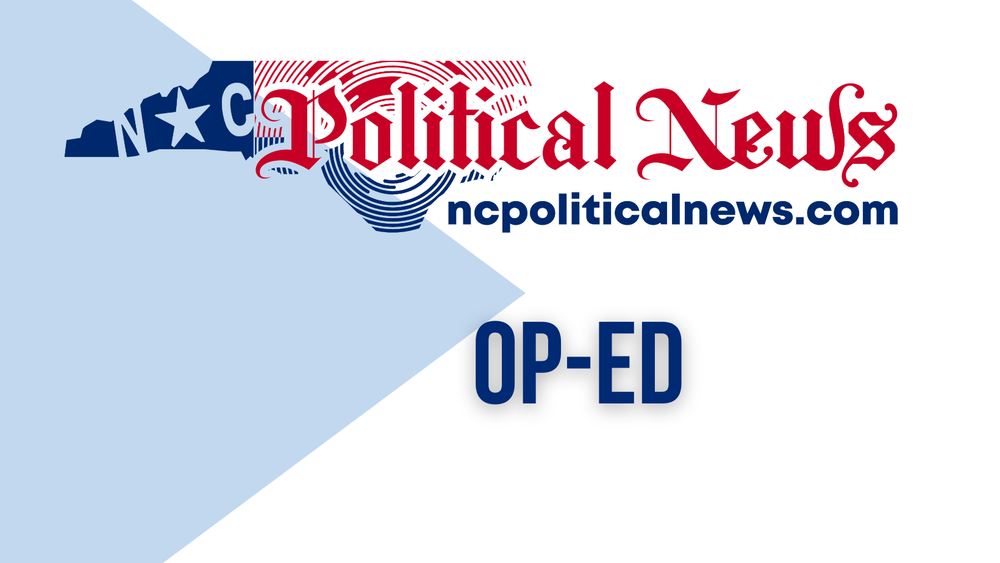John Hood: Get Ready for a Budgetary Storm
RALEIGH — For universities, state governments, localities, medical providers, and other institutions receiving lots of federal money, it’s time to batten down the hatches. Storm’s a-brewing.
Last month, the U.S. House of Representatives narrowly approved a plan to extend the federal tax cuts enacted during the first Trump administration. It calls for up to $2 trillion in budget savings to (partially) offset the effect on our already yawning federal deficits. The U.S. Senate is currently trying to come up with its own plan. “We have a lot of people who would like to go a lot farther,” Majority Leader John Thune (R-South Dakota) said of his caucus, along with “some who would like not to go that far.”
Meanwhile, the second Trump administration is already pursuing a strategy of withholding authorized spending and downsizing the federal workforce. In the context of a roughly $7 trillion budget, the fiscal impact of DOGE and related efforts is, so far, rather modest. But given that more than a quarter of that $7 trillion is funded by borrowing, perhaps someone in the administration will muster the courage to push harder and cut deeper.
Make no mistake: it will take courage. Most voters want Washington to get its fiscal house in order. It’s no coincidence that the last time Congress had a net-positive approval rating, during the late 1990s, the federal budget was running a surplus — modest and fleeting though it proved to be.
But most voters also underestimate both the magnitude of the current fiscal crisis and what will be required to address it. Over the past two months, they’ve been treated to largely negative media coverage of what were admittedly confusing and often shambolic attempts by DOGE to reduce spending. Two recent polls of North Carolinians found respondents less than impressed by the federal initiative so far.
Given a list of 14 federal agencies — ranging from public broadcasting, the IRS, and the EPA to the departments of Justice, Agriculture, and Defense — few respondents to an Elon University poll favored elimination or major reductions in spending. And in the latest Carolina Journal poll, more respondents expressed disapproval of DOGE (50%) than approval (46%), although most said they welcomed a DOGE-like effort to save money in our state government.
I say all that because it is possible the institutions I listed earlier as worried about losing federal funds will take a look at such polling, breathe a sigh of relief, and go back to business as usual. They’d be making a potentially disastrous mistake.
Facts are facts. The federal government cannot continue to add one or two trillion dollars a year to the country’s already staggering debt load. “Immediate action is required,” states a new report from the Joint Economic Committee of Congress, “before it is too late to prevent serious damage to not only the nation’s fiscal health but also its economic health and geopolitical power.”
Everything will be on the table — because everything has to be on the table. That includes relatively small slices of the pie such as research funding and the federal payroll as well as the primary drivers of federal spending: entitlement checks, defense procurement, and payments to medical providers from Medicare and Medicaid.
Here in North Carolina, policymakers need to get ready for what’s coming. In the General Assembly, for example, state legislators and staffers need to stop talking about the General Fund as if it is “the state budget.” It’s not. Setting aside transportation, North Carolina spent nearly $70 billion last year on education, health and human services, public safety, and other services. Only $31 billion came from General Fund revenues. The rest was financed by federal funds, user fees, and other receipts.
I happen to think funding for scientific and medical research is essential. But recipients still ought to expect some reductions. In defense spending, policymakers will at least need to cut in some areas to fund priorities elsewhere.
The storm is coming, like it or not.
John Hood is a John Locke Foundation board member. His books Mountain Folk, Forest Folk, and Water Folk combine epic fantasy with American history (FolkloreCycle.com).
Are you tired of being bombarded by paywalls and pop-up ads when trying to read the news? Do you believe that access to reliable political news should be free and accessible to everyone? Then we urge you to support NC Political News, a weekly electronic political news outlet.
NC Political News is committed to providing high-quality, unbiased political reporting with columnists from all political sides. Unlike other news outlets, NC Political News is free to read and supported by businesses who purchase ad space on our website and in our newsletter, which goes out Monday through Friday at 7:00 am. This means that readers like you can access the news without being asked to pay a cent or dealing with frustrating advertisements.
However, to continue providing this valuable service, NC Political News needs your support. If you believe in the importance of accessible, free news, we urge you to click the image below. Any amount of support is appreciated.
Together, we can keep the news free and help ensure our state stays informed and connected.




